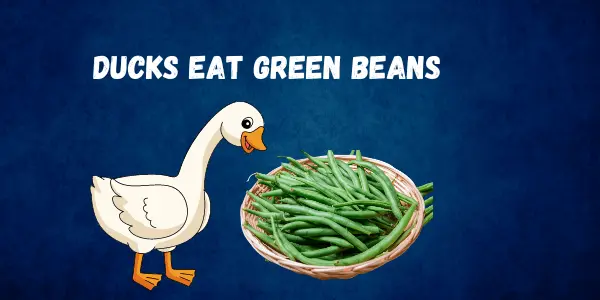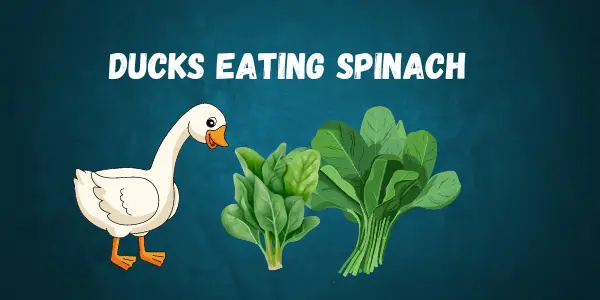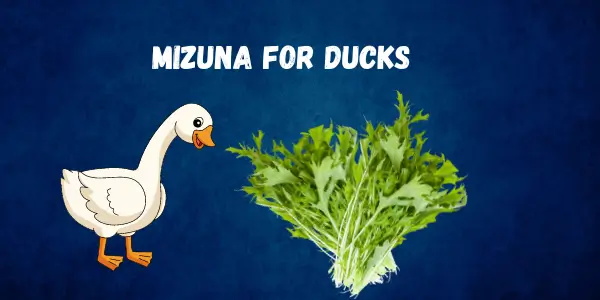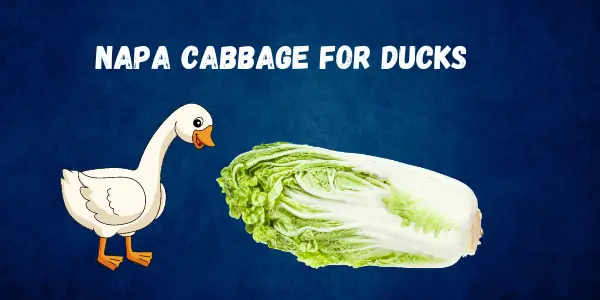Can Ducks Eat Lettuce? A Complete Guide for Duck Owners
Published: 7 Sep 2024
Ducks have a varied diet that includes grains, insects, and greens. Lettuce is often considered a suitable treat, but is it safe and nutritious for them? This guide covers everything you need to know before adding lettuce to your ducks’ diet.
Understanding a Duck’s Diet: Is Lettuce Safe?
Ducks are omnivores, meaning they consume both plant and animal matter. Their diet typically includes:
- Grains like corn, wheat, and oats
- Insects and small aquatic creatures
- Vegetables and leafy greens
- Commercial duck feed (such as Purina Duck Feed)
In the wild, ducks forage for food in ponds, lakes, and fields, consuming a mix of seeds, small fish, and plants. For domestic ducks, a balanced diet should include nutrient-rich foods to support their health.
Can Ducks Eat Lettuce Safely?
Yes, ducks can eat lettuce, but some types are better than others. Romaine lettuce and green leaf lettuce provide more nutrients compared to iceberg lettuce, which is mostly water. However, there are important considerations:
Lettuce should be a supplement, not a primary food source, to ensure ducks receive enough essential nutrients. Always chop lettuce into small pieces to prevent choking. Avoid spoiled or moldy lettuce, as it can cause digestive issues.

Nutritional Value of Lettuce for Ducks
Lettuce, especially darker leafy varieties like romaine, contains beneficial nutrients, including:
- Vitamin A: Supports vision and immune health.
- Vitamin K: Aids in blood clotting and bone strength.
- Folate: Important for cell growth and metabolism.
- Calcium: Helps maintain strong bones and eggshell quality.
Different types of lettuce provide varying amounts of these nutrients, making some more beneficial than others for ducks.
Does Lettuce Provide Enough Nutrients for Ducks?
While lettuce contains vitamins and minerals, it lacks sufficient protein and energy to be a staple food for ducks. It should be fed alongside a well-balanced diet that includes duck pellets, grains, and other vegetables. Offering lettuce as an occasional treat ensures variety without compromising overall nutrition.
Can Ducks Eat Different Types of Lettuce?
| Can Ducks Eat Different Types of Lettuce? |
|---|
|
Ducks can eat various types of lettuce, but not all provide the same nutritional value. Some are rich in vitamins and minerals, while others contain mostly water with little benefit. Below is a breakdown of different lettuce types and whether they are safe for ducks. Can Ducks Eat Romaine Lettuce?Yes, romaine lettuce is one of the best options for ducks. It contains vitamins A, K, and C, along with fiber that aids digestion. It is more nutritious than iceberg lettuce and can be safely included in a duck’s diet. Can Ducks Eat Iceberg Lettuce?Ducks can eat iceberg lettuce, but it has little nutritional value. It is mostly water and lacks essential vitamins and minerals. Feeding too much iceberg lettuce may cause digestive issues, so it’s best to offer more nutrient-dense greens instead. Can Ducks Eat Green Leaf Lettuce?Yes, green leaf lettuce is safe for ducks and provides a good amount of vitamins A and K. It is a healthier alternative to iceberg lettuce and can be fed in moderation. Can Ducks Eat Red Leaf Lettuce?Red leaf lettuce is safe and offers similar benefits to green leaf lettuce. It contains antioxidants and essential nutrients, making it a good choice for ducks. Can Ducks Eat Cos Lettuce?Cos lettuce, also known as romaine lettuce, is safe for ducks. It is one of the best options because it contains more nutrients than iceberg or butterhead lettuce. Can Ducks Eat Little Gem Lettuce?Yes, ducks can eat little gem lettuce. This variety is similar to romaine but smaller in size. It has a good amount of fiber and vitamins, making it a suitable addition to their diet. Can Ducks Eat Butterhead Lettuce?Ducks can eat butterhead lettuce, including varieties like Boston and Bibb lettuce. It is soft and easy to chew but has lower nutritional content compared to romaine or green leaf lettuce. Can Ducks Eat Spring Mix Lettuce?Yes, ducks can eat spring mix, but check the ingredients first. Some mixes contain spinach or other greens high in oxalic acid, which can interfere with calcium absorption. Stick to safer options like romaine, green leaf, and red leaf lettuce. Can Ducks Eat Bibb Lettuce?Bibb lettuce is a type of butterhead lettuce and is safe for ducks. However, like other soft lettuces, it lacks the same nutritional value as romaine or green leaf lettuce. Can Ducks Eat Raw Lettuce?Yes, raw lettuce is the best way to feed ducks. It retains all its natural nutrients and provides hydration. Always chop it into small pieces to prevent choking. Can Ducks Eat Cooked Lettuce?While ducks can eat cooked lettuce, it is not recommended. Cooking reduces the nutritional content, and some seasonings or oils may be harmful. Stick to raw lettuce for the best benefits. Can Ducks Eat Regrow Lettuce?Yes, regrown lettuce from scraps is safe for ducks, as long as it is fresh and clean. Ensure that it has not been exposed to pesticides or chemicals before feeding. Can Ducks Eat Frozen Lettuce?Frozen lettuce is not ideal for ducks. Once thawed, it becomes mushy and loses its texture. Fresh, raw lettuce is a better option. Can Ducks Eat Pickled Lettuce?No, ducks should not eat pickled lettuce. It contains high amounts of salt and vinegar, which are harmful to their digestive system. Avoid feeding any pickled or processed foods to ducks. |
Can Baby Ducks Eat Lettuce?
Baby ducks (ducklings) have different dietary needs compared to adult ducks. While lettuce is safe for them in moderation, it should not replace nutrient-dense foods essential for their growth.
Age Considerations for Feeding Lettuce to Ducklings
- 0-2 weeks old: Ducklings should primarily eat high-protein starter feed (20-22% protein) to support rapid growth. Lettuce should be avoided at this stage.
- 3-6 weeks old: Small amounts of finely chopped lettuce can be introduced alongside their main diet.
- 6+ weeks old: At this stage, ducklings can eat a more varied diet, including small portions of romaine or green leaf lettuce.
Best Ways to Serve Lettuce to Baby Ducks
- Chop finely: Cut lettuce into tiny pieces to prevent choking.
- Mix with water: Floating lettuce in water makes it easier for ducklings to eat.
- Avoid iceberg lettuce: It has little nutritional value and may cause digestive upset.
- Limit portions: Lettuce should be a small part of their diet, not a staple food.
How to Safely Feed Lettuce to Ducks
Proper preparation is key to ensuring ducks can eat lettuce without any health risks.
The Right Way to Prepare Lettuce for Ducks
- Wash thoroughly: Remove any pesticides or chemicals.
- Cut into small pieces: Large leaves can be difficult to swallow.
- Serve fresh: Avoid feeding wilted or moldy lettuce.
- Offer in moderation: Lettuce should not replace a balanced diet.
Should Lettuce Be Chopped, Shredded, or Whole?
- Chopped: Best for baby ducks and smaller breeds.
- Shredded: Ideal for easy consumption and mixing with other foods.
- Whole leaves: Suitable for adult ducks but should be monitored to prevent choking.
Safe vs. Unsafe Ways to Offer Lettuce
Safe Ways:
- Fresh, pesticide-free lettuce
- Chopped into small pieces
- Served in clean water or mixed with duck feed
Unsafe Ways:
- Feeding large whole leaves (choking hazard)
- Offering moldy or spoiled lettuce
- Giving iceberg lettuce frequently (low nutrients)
By following these guidelines, you can safely include lettuce in a duck’s diet while ensuring they receive the proper nutrients.
Can Ducks Eat Lettuce with Other Foods?
| Can Ducks Eat Lettuce with Other Foods? |
|---|
|
Lettuce can be combined with other foods to create a balanced diet for ducks. However, not all food pairings are ideal, and some may pose risks. Can Ducks Eat Lettuce and Tomatoes Together?Yes, ducks can eat lettuce and tomatoes together, but with caution. Tomatoes provide vitamin C and antioxidants, but the leaves and stems of tomato plants are toxic to ducks. Always remove any green parts and feed only ripe tomatoes in small amounts to avoid digestive upset. Can Chickens and Ducks Eat Lettuce?Yes, both chickens and ducks can eat lettuce. Leafy greens like romaine and red leaf lettuce are safe for both species, but iceberg lettuce should be limited due to its low nutritional value. Ensure the lettuce is fresh and chopped into manageable pieces for easy consumption. Can Ducks and Geese Eat Lettuce?Yes, ducks and geese can eat lettuce. Both birds enjoy leafy greens as part of their diet. However, geese generally prefer tougher greens like kale and dandelion leaves. When feeding mixed flocks, choose nutrient-rich lettuce varieties like romaine or green leaf. Can Ducks Eat Lettuce in the Winter?Yes, ducks can eat lettuce in the winter, but it should not replace warm, energy-dense foods like grains and pellets. Since ducks need extra calories to maintain body heat, lettuce should be fed as an occasional treat rather than a primary food source. |
Risks and Precautions When Feeding Lettuce to Ducks
| Risks Of Eating Lettuce For Ducks? |
|---|
|
Lettuce is generally safe for ducks but should be given in moderation as a treat rather than a main part of their diet. While it provides hydration and is enjoyed by ducks, excessive consumption can lead to digestive problems and diarrhea due to its high water content. Lettuce lacks essential nutrients, protein, and calories that ducks need, so relying on it too much can cause nutrient deficiencies. Offer small amounts of chopped, nutrient-rich lettuce a few times per week, alongside a balanced duck feed, to ensure a healthy diet. Moderation is crucial for incorporating lettuce without impacting their health. |
Can Ducks Eat Moldy or Spoiled Lettuce?
No, ducks should never eat moldy or spoiled lettuce. Mold can produce harmful toxins that lead to serious health issues, including respiratory problems and digestive upset. Always check for freshness before offering lettuce to ducks.
Does Lettuce Contain Harmful Substances for Ducks?
Lettuce does not contain inherently toxic substances, but some varieties, like iceberg lettuce, have high water content and low nutrients. Overfeeding lettuce can cause diarrhea and reduce nutrient absorption from other foods. Additionally, lettuce should always be pesticide-free.
How Often Should Ducks Eat Lettuce?
Lettuce should be an occasional treat rather than a staple.
- Ducklings (under 6 weeks old): Rarely or in very small amounts.
- Adult ducks: 2-3 times per week in moderation.
- Wild ducks: Only when natural food sources are limited.
Conclusion: Should You Include Lettuce in a Duck’s Diet?
Lettuce can be a healthy addition to a duck’s diet when offered in moderation. Nutrient-rich varieties like romaine and red leaf lettuce provide vitamins and hydration, while iceberg lettuce offers little benefit. Proper preparation—washing, chopping, and avoiding spoiled or moldy leaves—is essential for safe consumption.
FAQs Ducks Eating Lettuce
Ducks in different environments have varying diets, but lettuce can be a suitable supplement for both wild and domestic ducks when offered responsibly.
Yes, mallard ducks can eat lettuce. Since they are commonly found in the wild, they rely on a diverse diet that includes aquatic plants, grains, and insects. If feeding mallards in a park or pond, offer chopped romaine or green leaf lettuce instead of bread, which lacks nutrients.
Yes, Muscovy ducks can eat lettuce. As a domesticated breed with a preference for plant-based foods, they enjoy leafy greens. However, their diet should also include grains and proteins for balanced nutrition.
Yes, wild ducks can eat lettuce, but it should be given sparingly. Since they have access to natural food sources like aquatic plants, insects, and small fish, lettuce should be an occasional treat rather than a dietary staple. Always avoid feeding wild ducks spoiled or moldy lettuce.

- Be Respectful
- Stay Relevant
- Stay Positive
- True Feedback
- Encourage Discussion
- Avoid Spamming
- No Fake News
- Don't Copy-Paste
- No Personal Attacks

- Be Respectful
- Stay Relevant
- Stay Positive
- True Feedback
- Encourage Discussion
- Avoid Spamming
- No Fake News
- Don't Copy-Paste
- No Personal Attacks





